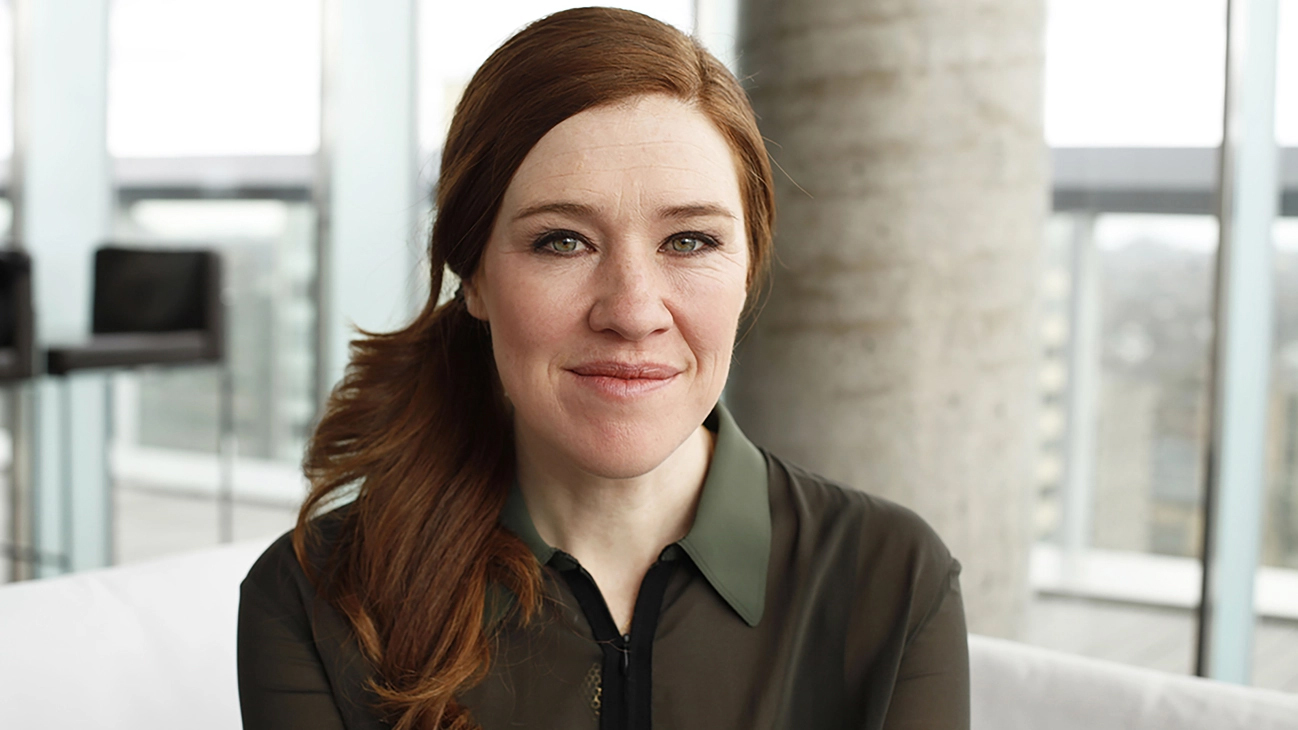
With Clara Hughes, Olympian and Mental Health Advocate
You’ve been a true leader in the mental health world—sharing your experience about battling depression and doing it as a decorated Olympic athlete and woman. Can you tell us more about your experience?
I spent so many years sharing only the joy and elation of success at the highest level in sport. Honestly, I thought that’s all people would be interested in. It took me walking my own healing path to realize we connect as people through struggle as well. Opening up about my mental health—the roller coaster of functioning and struggles that at times took me away from being able to train and compete—allowed for this beautiful series of human connections that continue to happen to this day. I don’t know if it was seeing someone who had my level of success in sports talk about their mental health struggles that led to people really resonating with my story. I do know for me personally that when someone shares their mental health journey, I am not alone. I’m reminded of the great gift that sharing my own story was and is. These connections mean the world to me, and I have no regrets.
What was the catalyst for sharing your mental health story with Canadians?
After competing in the 2010 Olympics here at home in Vancouver/Richmond and Whistler, I saw how sport brings us together. I was a defending Olympic champion and won a bronze medal. The reactions I received, the sharing of excellence no matter the result, or having people say I recognize you by your smile—it all made me realize I was only sharing part of my journey. I had the opportunity to experience a traditional ceremony with friends from the Squamish Nation before the games, which opened my heart and my mind to what was possible not only on the ice but as a person. This ceremony also taught me the importance of sharing tears and seeing them as a gift—as an act of watering the earth and sharing something beautiful. When I heard about an upcoming initiative with one of my sponsors that was 100% focused on breaking down the stigma associated with mental illness, I asked to be a part of the campaign. This was the Bell Let’s Talk campaign, and that’s where the opportunity came to share at a very big level. Even if I only helped one person know they are not alone, then I did my job.
For those looking for help but don’t know where to go, what’s an easy first step to getting help?
Talk to someone you trust. Talk to someone you feel comfortable and safe with. Taking that first step of expressing this can be pivotal for a person who might be experiencing a mental health concern. Family doctors can also be great resources about what’s available in your local community. When you’re managing a health concern and also navigating all of the elements of life, it’s often just too difficult. Knowing that nothing is done alone and having an ally who can help is a great thing. People are often willing to help, but it’s difficult to ask for and to receive help. I encourage people to know you’re not in this alone and to let someone help them.
For anyone hesitating to take that first step for any reason, can you provide any advice on what kind of returns they can expect from putting in the work?
You can get your life back. You can connect to a version of yourself that you perhaps have never truly known. You can grow and develop as a person and find little bits of joy you’ve possibly never felt before. You can function. You can feel. You can move into your true self. This takes time, effort, and ups and downs and the work is never truly done. But it is the work of a lifetime that is worth it. You are worth it.
The world of insurance has a reputation for being very stressful at times—do you have any advice for our readers on how to manage this?
Balance. Any work, no matter how glamorous or arduous becomes ordinary. Many times, work isn’t fun, exciting or motivating. I skated in circles for ten years of my life – spent 5-8 hours on a bike for the other 13 years of my athletic life. People thought this was so exciting. The reality was very different. It was stressful, boring at times and not very inspiring in the grind of it all. I found a way to manage this stress and monotony by bringing in elements of creativity, adventure and learning. For me, these were different forms of visual arts, writing, and micro-adventures like hiking and bike touring. Even taking a day away from my work headspace would help me connect back to what is called the beginner’s mind. I would return open to learning and growing again. I would see the true elements of stress more clearly and be able to better manage my energy. Also, and this might seem simple, I think most people are chronically dehydrated, which I know now in life after sport affects my mental space. It seems silly but drink more water!
What steps should friends, family, and co-workers take to help someone who is struggling with mental health?
Know that you are part of a person’s circle of strength. They might reach out to you for help or support. It’s important for you to hold that space in a non-judgmental way. Begin with just listening and allowing them to be heard. You can also educate yourself with resources and help nearby that are easy to access, so you can help advocate for this person if this is what they want. Allow this individual to be seen, heard and believed. Don’t try to be the professional that can help in an appropriate way. Be the friend, family or colleague, and allow professionals to do the work to help.
If you could share one message with the people reading this article, what would it be?
You are not alone. You are the many, not the few. I see you, hear you and believe you. You are so much stronger than you think. You matter and this world needs you. Helping is possible. Healing is possible. We all have these capacities inside of us.
